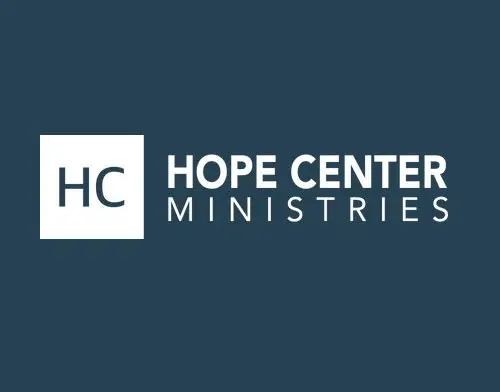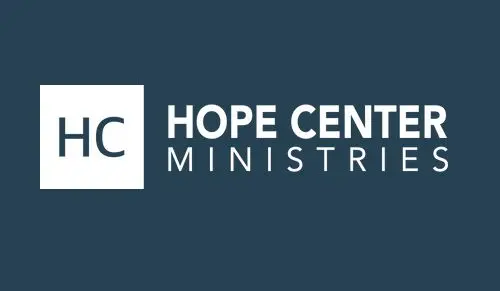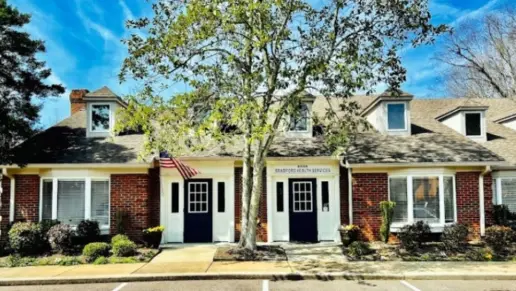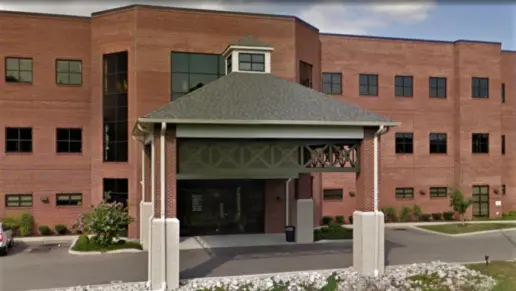About Hope Center Thrift Store
Hope Center Ministries - Men's Center is a Christian-based and 12-step program for those men seeking for recovery from alcohol and substance abuse. Services include individual and group counseling as well as family support. Hope Center Ministries-Multiple Locations across the United States
Hope Center Ministries’ main goal is to help individuals to overcome their alcohol and drug addiction by restoring hope, restoring lives, and by helping residents realize the love of Jesus. They utilize a variety of bible-based curriculum and 12-step programs including Celebrate Recovery groups.
The residential treatment program is divided into 3 different phases; phase 1 (6 weeks), phase 2 (minimum of 20 weeks) and phase 3 (8 week minimum).
The program is designed to lasts a minimum of 8 months, it is a comprehensive and faith-based alcohol and drug addiction treatment that also help individuals to prepare for a stable and sober transition to independent life.
The program include Bible study, prayer, devotionals activities and a classroom curriculum including training in personal skills that help individuals to return to a stable and responsible life.
Residents are required to participate in different activities including individual sessions, groups sessions, Bible Studies, Life Groups, Weekly Aftercare, 12-step meetings and Celebrate Recovery groups.
Individuals may have books, magazines, etc. however, all reading materials and music must be approved by staff onsite.
Facility Overview
Latest Reviews
Rehab Score
Gallery
Location
Other Forms of Payment
Self-pay involves paying for treatment out of your own pocket. You can use savings or credit, get a personal loan, or receive help from family and friends to fund your treatment. If you don't have insurance or your insurance plan doesn't cover a specific program, self-pay can help ensure you still get the care you need.
Addiction Treatments
Levels of Care
Treatments
The goal of treatment for alcoholism is abstinence. Those with poor social support, poor motivation, or psychiatric disorders tend to relapse within a few years of treatment. For these people, success is measured by longer periods of abstinence, reduced use of alcohol, better health, and improved social functioning. Recovery and Maintenance are usually based on 12 step programs and AA meetings.
When your day-to-day life is taken over by drug use, this is known as substance use disorder. If you abruptly stop using your drug of choice, you experience withdrawal symptoms. To overcome this cycle, professional drug rehab in Tennessee is usually needed.
Opioid rehabs specialize in supporting those recovering from opioid addiction. They treat those suffering from addiction to illegal opioids like heroin, as well as prescription drugs like oxycodone. These centers typically combine both physical as well as mental and emotional support to help stop addiction. Physical support often includes medical detox and subsequent medical support (including medication), and mental support includes in-depth therapy to address the underlying causes of addiction.
Substance rehabs focus on helping individuals recover from substance abuse, including alcohol and drug addiction (both illegal and prescription drugs). They often include the opportunity to engage in both individual as well as group therapy.
Programs


Clinical Services
Group therapy is any therapeutic work that happens in a group (not one-on-one). There are a number of different group therapy modalities, including support groups, experiential therapy, psycho-education, and more. Group therapy involves treatment as well as processing interaction between group members.
In individual therapy, a patient meets one-on-one with a trained psychologist or counselor. Therapy is a pivotal part of effective substance abuse treatment, as it often covers root causes of addiction, including challenges faced by the patient in their social, family, and work/school life.
If you participate in motivational interviewing in Tennessee, your therapist will focus on four key strategies: open questions, affirmation, reflections, and summarizing. Rather than confront or warn you to change, the clinician will allow you to explore your own motivations and decide what changes you may need to make in your life.
While engaged in couples therapy in Tennessee, you'll learn how to trust, communicate, forgive, and manage emotions. Developing these skills can be beneficial at any time during the relationship, but they are particularly crucial when facing life challenges.
Research clearly demonstrates that recovery is far more successful and sustainable when loved ones like family members participate in rehab and substance abuse treatment. Genetic factors may be at play when it comes to drug and alcohol addiction, as well as mental health issues. Family dynamics often play a critical role in addiction triggers, and if properly educated, family members can be a strong source of support when it comes to rehabilitation.
Life skills trainings involve all the skills a person must have in order to function successfully in the world. These include time management, career guidance, money management, and effective communication. Truly successful addiction recovery is based on the ability to not only live substance-free, but to thrive. Life skills teaches the practical necessities of functioning in society, which sets clients up for success in life, and therefore sobriety.
Amenities
-
Residential Setting
-
Private Rooms
Staff

Founder

Admissions Tennessee
Contact Information
133 W Main St
Camden, TN 38320



